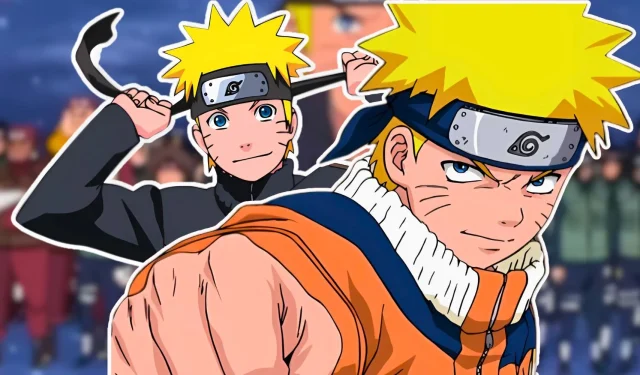Naruto Uzumaki is a standout character among shōnen anime protagonists, not just for his remarkable battles and achievements, but also for his unique ability to connect with others. This ability, often derisively referred to as Naruto’s Talk no Jutsu, has sparked much debate among fans. While some view it as a humorous aspect of the series, others recognize its deeper significance, as it plays a crucial role in Naruto’s character development and resonates with audiences on a profound level. Even after the conclusion of Naruto, memes concerning this technique continue to proliferate, highlighting its impact and relevance beyond mere entertainment.
The Significance of Talk no Jutsu in Naruto’s Journey
It’s undeniable that Talk no Jutsu has become an inseparable element of Naruto’s persona, prompting countless memes and jokes from fans. Unlike his conventional jutsu, which rely on physical power and strategy, Naruto’s ability stems from his profound empathy and understanding. He possesses the extraordinary skill to change the hearts of even the darkest villains, turning fierce enemies into allies. Although some fans find this tendency to pacify opponents disappointing and detrimental to the excitement of his battles, the essence of Talk no Jutsu is far from trivial. Instead, it is reflective of the thematic heart of the series, emphasizing redemption and understanding.
The Influence of Iruka Umino on Naruto’s Development
Iruka Umino, one of Naruto’s early instructors, serves as a pivotal figure in the young ninja’s life. Despite not being his biological parent, Iruka became a father figure who provided Naruto with the support and acceptance he desperately needed amidst widespread ostracism from the villagers. Many fans believe that Naruto’s famed Talk no Jutsu can be traced back to the lessons learned from Iruka. When Naruto attempted to steal the Scroll of Seals, it was Iruka’s compassionate response that acted as a catalyst for change in Naruto’s life. His acknowledgment of Naruto’s pain and his commitment to guiding him marked a transformative moment for the young ninja.
Iruka’s profound understanding and ability to empathize not only saved Naruto that day but also sowed the seeds for the future usage of Talk no Jutsu. By risking his own life for Naruto, Iruka demonstrated that empathy could conquer animosity and despair. This lesson instilled deep trust and admiration in Naruto, shaping his capacity to connect with others, including adversaries. Iruka’s influence is unmistakable, revealing that even the mightiest barriers built from hatred can be dismantled through sincerity, an essential principle that would define Naruto’s journey.
Talk no Jutsu: An Essential Attribute of Naruto Uzumaki
Despite the extensive memes surrounding Talk no Jutsu, it is crucial to understand that this ability is far from irrational. In contrast to many other shōnen heroes who rely solely on raw power, Naruto’s unique approach allows him to extend understanding to his enemies. While this has led some to criticize his methods as naïve or unnecessary, they fail to consider that Talk no Jutsu is not the primary tool Naruto uses against foes. Instead, it often comes into play after action has been taken, showcasing a strategic layer to his character that seeks potential goodness in people.
Naruto’s optimism stands in direct contrast to morally ambiguous characters like Orochimaru, who exploit the vulnerable. While numerous memes contribute to the humor surrounding Talk no Jutsu, they often overshadow the genuine character development and growth that occurs as a result. Furthermore, it’s important to note that Talk No Jutsu isn’t exclusive to Naruto—other characters, including Iruka and Jiraiya, have demonstrated similar qualities, emphasizing the power of words in shaping destinies.
Talk No Jutsu and the Philosophical Core of the Series
Naruto’s Talk no Jutsu is innately aligned with the philosophical themes woven throughout the franchise. The essence of his character lies not just in battle prowess, but in his incredible ability to connect and empathize with others. A striking example of this philosophy is seen in Gaara’s transformation; once an enemy, he became one of Naruto’s closest friends after being positively influenced by Naruto’s compassion and understanding. This illustrates how Naruto’s genuine desire to extend a hand to others enhances the narrative’s depth, reinforcing the idea that true strength lies in vulnerability and understanding.
Moreover, Naruto’s journey extends beyond mere conflicts or victories; it serves as a beacon of hope, emphasizing the importance of compassion. Through his character, the series conveys that offering forgiveness and understanding is not an act of weakness but a demonstration of profound strength. While some may critique other characters for their similar traits, Naruto’s portrayal rises above, illustrating the transformative power of empathy.
In summary, Talk no Jutsu transcends being a mere punchline; it embodies core values of understanding and redemption that resonate deeply throughout the Naruto series. As humorously creative as the memes may be, they should also prompt viewers to reflect on the profound messages within Naruto’s story—messages about hope, second chances, and the transformative power of empathy.


